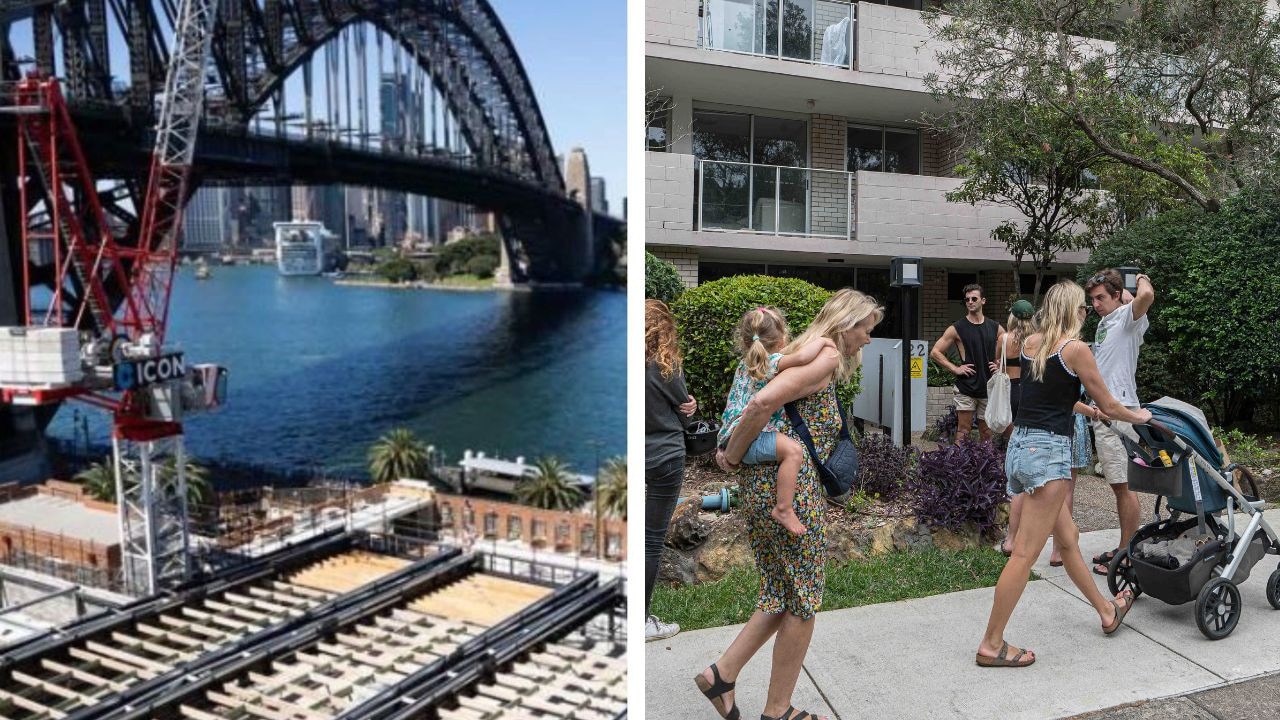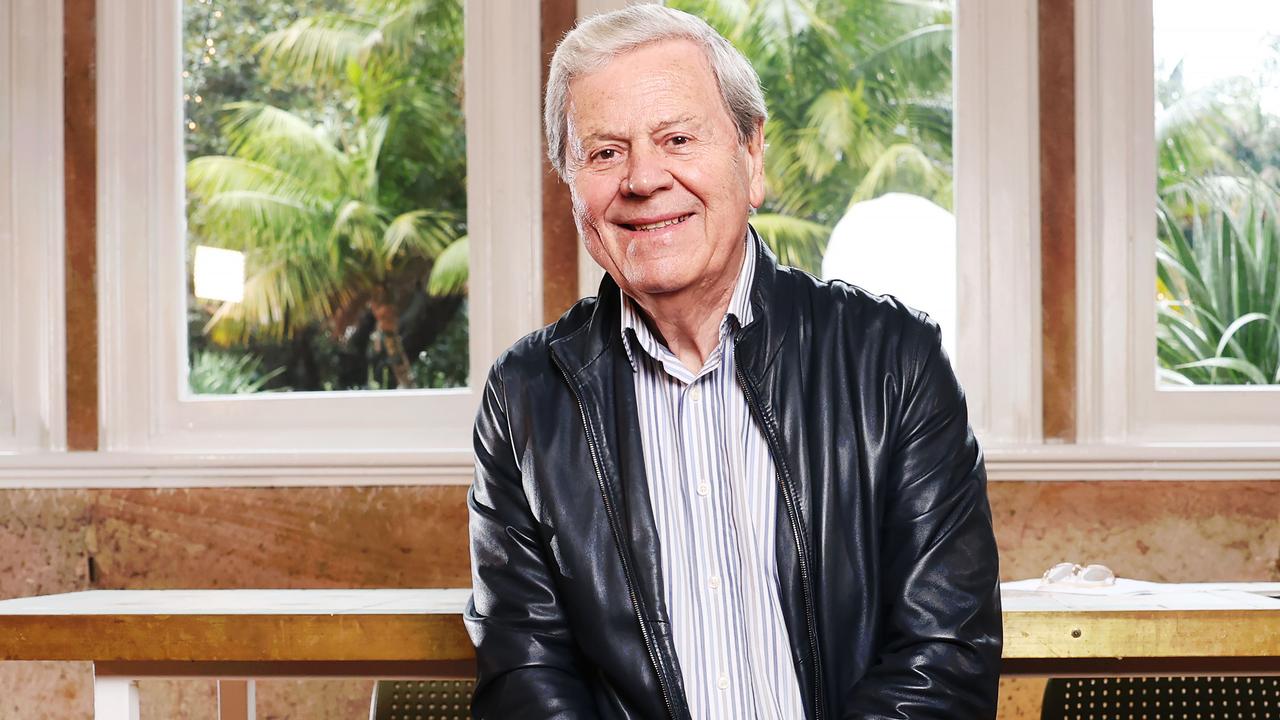Meet the humble hero serving the North Shore community
The North Shore’s award-winning top cop lives to serve others. These are the lessons and challenges that helped shaped his career.
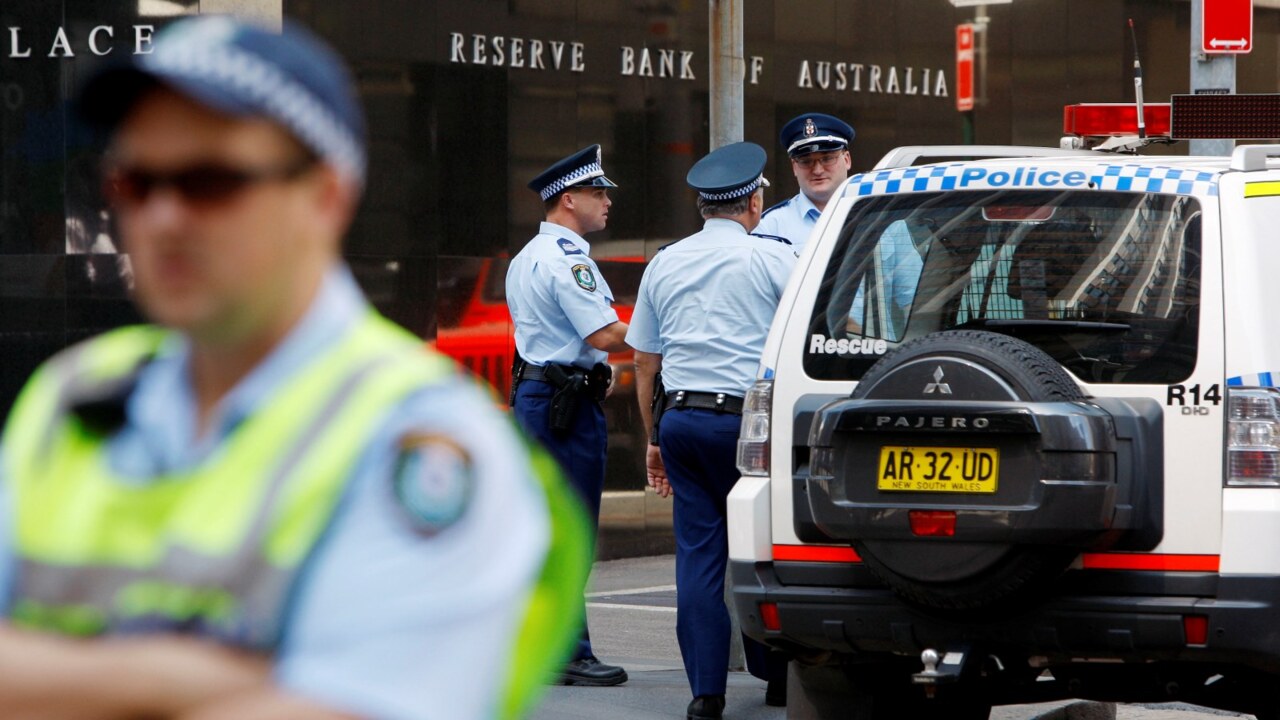
Mosman
Don't miss out on the headlines from Mosman. Followed categories will be added to My News.
Wary of revealing too much of himself, both because of his role and his natural inclination, Detective Superintendent Paul Devaney of North Shore Police Area Command (PAC) won’t even play the choice game – cat or dog?
He looks puzzled, even though he still has his friendly smile: “I don’t really want to talk about myself. It’s just the way I am.” But he relents: “Neither – although I used to have a dog.”
Reticence is not such a problem. It allows a newspaper to share the contributions the person has made without having to manage their hype.
But then, at the very end of the interview we start idly chatting about the contents of a glass cabinet.
“That holds my awards,” he says. Plural. And said with self-effacing candour. They were all received for bravery. Four of them, including a Royal Humane Society award, after one incident.
Devaney will always live with the images of that night: “They are never far away.”
It was back in 2003 and he was the first police responder to a crash at Beacon Hill. The car was on fire and two men were trapped. Working with others, Devaney tried to free them, despite the intensity of the fire, which kept reigniting.
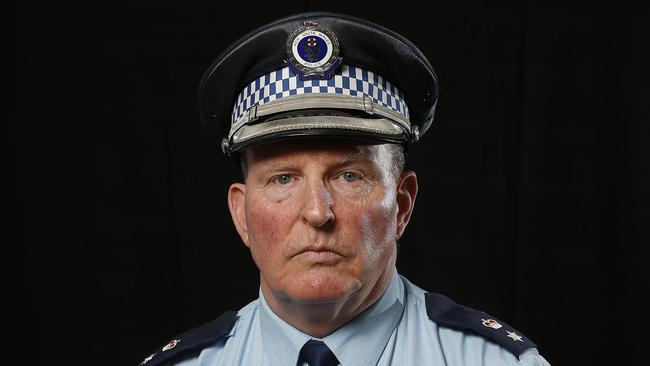
The driver stopped breathing and Devaney focused on the surviving passenger, trying to rally his spirits and keep him conscious. Eventually Emergency Services arrived and got him out, although he died shortly after. But Devaney provided a comforting human presence for that man in his horrific last moments of consciousness.
It’s common for police to leave the force after such incidents, never able to risk facing such an event again.
“Yes, I could have walked away, it affected me so deeply. But I made the decision to stay, to accept such an experience as part of policing, and I’m glad I did.”
The experience shaped a cornerstone piece of wisdom Devaney holds fast to now: “You can show empathy to people but you can’t take people’s grief away from them. You have to put their grief behind you, to move on, so you can keep going.”
North Shore PAC is Devaney’s seventh command. It covers four local government areas, stretching from Chatswood up to Lindfield, across to Mosman and down to Sydney Harbour Bridge. He has 272 staff under his command.
He has been in the Child Abuse and Sex Crimes Squad, Corporate Services, staff officer to the Deputy Commissioner Specialist Operations and has held two commands covering police transport.
Devaney has commanded Burwood PAC but more recently Cumberland PAC during Covid-19. It was to become the PAC with the highest number of Covid-19 cases in the whole of the country.
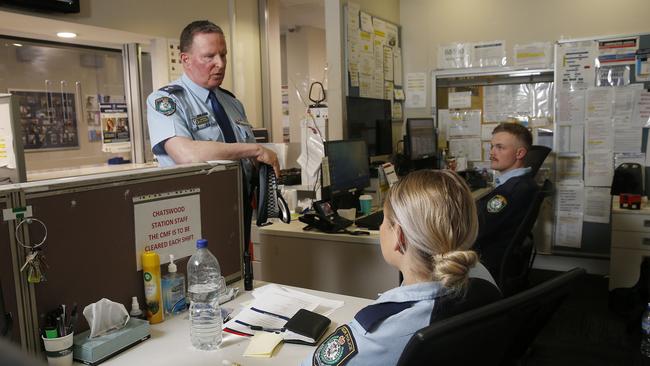
“The day I took over was the day the area entered Covid-19 lockdowns. The restrictions, which we had to enforce, were constantly changing,” he says.
By mid-July 2021, Cumberland was one of two communities experiencing stricter state lockdown laws than any others, leaving many in those communities feeling unjustly targeted. But Devaney says, on the ground, most ordinary people felt reassured, not threatened, by the visible police presence, which included additional police from other areas.
“We were knocking on doors with 100 additional police and Australian Defence Force personnel in the command every day, and that saved lives,” he says. “Because when we checked on stay-at-home order compliance, we met people isolating who were very sick. So we were able to get in touch with ambulances and health services when there was an urgent medical need.”
Devaney moved from there to take up command of North Shore in June this year. Right now, he’s excited about the new PACER program for which the North Shore Command has recently been allocated funds by NSW Health.
“PACER stands for Police Ambulance Clinical Early Response team. It means police can take a mental health team with them.”
Police are often called to incidents involving mental health problems. In a psychotic experience, when the person is struggling with reality, the situation can quickly escalate, often involving violence. Having a PACER team attend ensures the situation is handled more safely and that the person suffering the episode gets the right support more quickly.
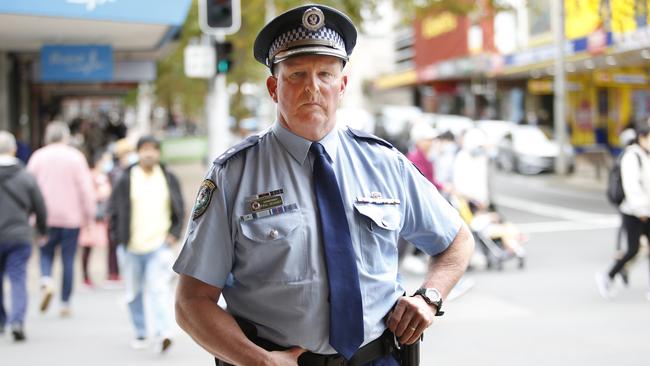
North Shore PAC is relatively unscathed by the gangland drive-by shootings that have hit other parts of Sydney in the past two years. And it doesn’t have problems like youth postcode wars or constant media reports of busts for cocaine dealing and possession like other affluent parts of Sydney.
But it has its share of crime. Latest Bureau of Crime Statistics and Research (BOCSAR) figures, to June this year, show an alarming 11 per cent rise in domestic assaults across NSW and a 14 per cent rise in sexual assault.
Devaney points out this sharp rise hasn’t occurred in the North Shore PAC. Even though the figures have remained doggedly consistent, at least they have been level here for the past five years.
NSW BOCSAR figures also show break and enters have dropped, including on the North Shore. Figures dropped dramatically during Covid lockdowns, and they haven’t gone back up yet.
“The majority of crime is stable or falling in most crime categories, although there was a small spike this year and last year in aggravated break and enters,” Devaney says.
“These were related to young people targeting high-performance vehicles on the North Shore. Once you have the keys you can get into them very easily, so this crime is about breaking and entering houses to steal car keys.
“They don’t want a confrontation but they’ll break in through an unlocked window. This means it’s still important to lock the house at night.”
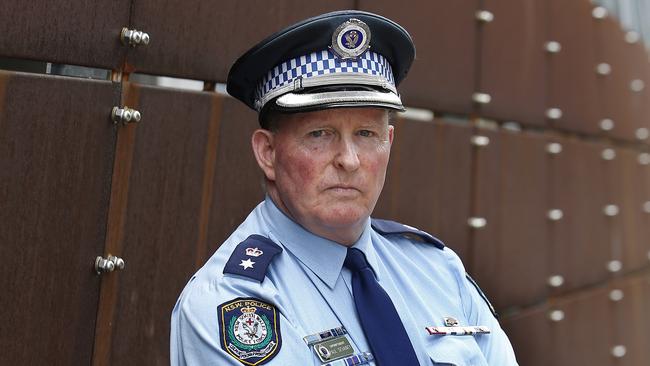
Policing this type of crime is helped by modern technology, such as CCTV footage. Today, police can rely on the CCTV cameras of homeowners, their neighbours, passing buses and the dashcams of many other vehicles to track offenders – almost to their homes. And this has meant success in arrests.
Another advance having a big impact on crime management is the use by police of body-worn video cameras. They make police more professional but they also change people’s behaviour.
“If people are being aggressive towards the police, once they realise they’re being filmed, they tend to modify their actions. And they’re fantastic for providing evidence if a case goes to court. The evidence of what happened in the incident is there, for everyone to see,” Devaney says.
But just as break and enters are less frequent, online crime is more prevalent.
“I think the criminal element will always find other ways of committing crimes,” Devaney says.
“It’s a matter of educating the community. Only recently we’ve investigated the case of an elderly lady who was robbed of a very large sum of money because of an online scam. We can all play our part in helping prevent this. You can educate your elderly relatives that if they get an email or text and they’re suspicious, they should ask someone about it before they open it.”
But we also need to help educate ourselves – whatever age we are.
Devaney says the Australian Competition and Consumer Commission’s Little Black Book of Scams is a great help with this. It’s available at your local police station but can also be downloaded from accc.gov.au/publications/the-little-black-book-of-scams.

